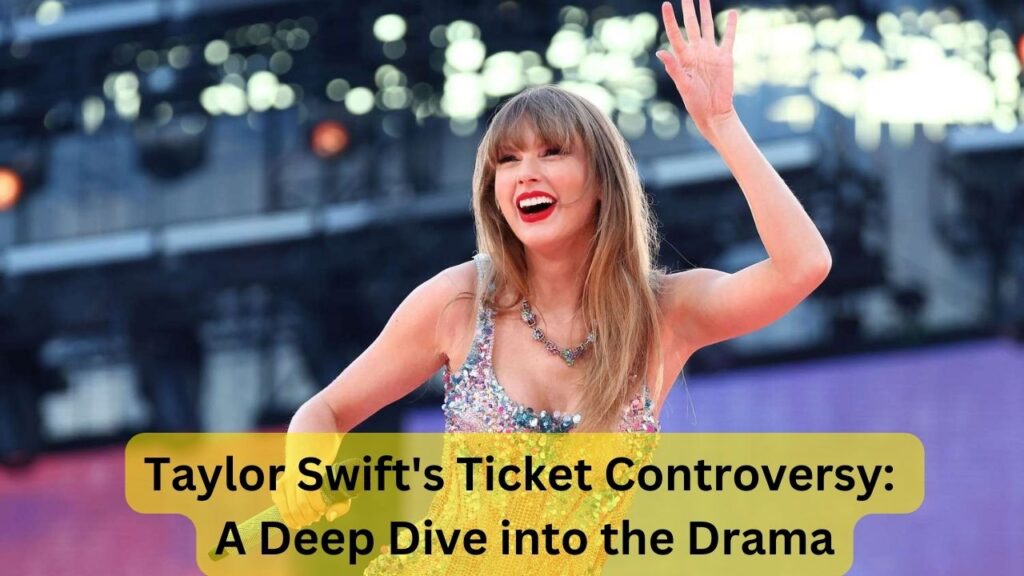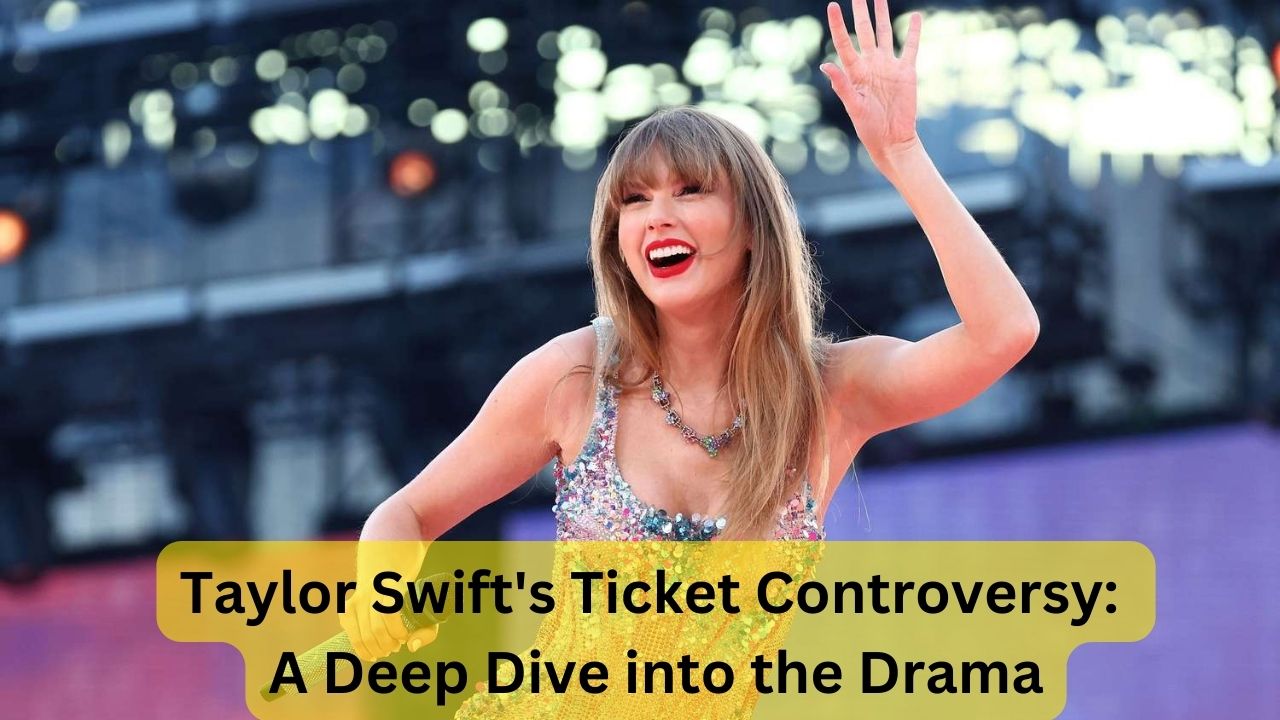
Taylor Swift, a global music icon, has always been in the limelight for her chart-topping hits and sensational performances. However, her 2023 tour sparked a significant controversy that overshadowed her musical prowess. The ticketing fiasco surrounding her concerts became a hot topic, leading to widespread criticism and calls for reform in the ticketing industry. This article explores the intricacies of Taylor Swift’s ticket controversy, its causes, implications, and the responses from various stakeholders.
Background: The 2023 Tour Announcement
Swift’s Highly Anticipated Tour
In late 2022, Taylor Swift announced her 2023 world tour, much to the excitement of her fans, known as “Swifties.” The tour, encompassing multiple continents and dozens of cities, was poised to be one of the year’s biggest musical events. Given Swift’s massive fanbase and the success of her recent albums, the demand for tickets was expected to be extraordinarily high.
Pre-Sale and Public Sale
To manage the anticipated demand, Swift’s team and Ticketmaster, the official ticketing partner, organized a pre-sale for verified fans before the public sale. The pre-sale aimed to ensure that genuine fans had the first chance to purchase tickets, while the public sale was set to accommodate the remaining demand.
The Controversy Unfolds
Technical Glitches and Site Crashes
On the day of the pre-sale, millions of fans logged onto Ticketmaster’s website, causing the site to crash multiple times. Many fans reported being stuck in virtual queues for hours, only to be met with error messages or notification that tickets had sold out. The technical issues were widespread, leading to frustration and anger among fans who had been eagerly awaiting their chance to see Swift perform live.
Scalping and Bots
Amid the chaos, it became evident that a significant number of tickets had been acquired by scalpers and automated bots. These tickets quickly appeared on secondary market websites at exorbitant prices, further fueling the outrage. Fans who had missed out during the official sales found themselves facing prices many times higher than the original ticket cost.
Reactions and Responses
Fan Backlash
The immediate reaction from Swift’s fanbase was one of disappointment and anger. Social media platforms were flooded with complaints and stories of fans’ unsuccessful attempts to secure tickets. The hashtag #TaylorSwiftTicketmaster began trending, with many calling for accountability and changes to the ticketing system.
Taylor Swift’s Statement
Recognizing the mounting discontent, Taylor Swift released a statement expressing her frustration and disappointment with the situation. She apologized to her fans, stating that she and her team had been assured by Ticketmaster that they could handle the demand. Swift also emphasized her commitment to ensuring her fans had fair access to her concerts in the future.
Ticketmaster’s Response
Ticketmaster issued an apology for the technical issues and acknowledged the failure to meet the demand effectively. They cited unprecedented traffic and attempts by scalpers and bots as significant challenges. Ticketmaster also promised to review and improve their systems to prevent similar occurrences in the future.
The Broader Implications
Regulatory Scrutiny
The controversy caught the attention of lawmakers and regulators, prompting discussions about the need for stricter regulations in the ticketing industry. Several politicians called for investigations into Ticketmaster’s practices and the overall fairness of the ticketing process. The incident highlighted the need for better consumer protection and measures to combat scalping and automated ticket-buying bots.
Industry-Wide Impact
The fallout from Swift’s ticketing controversy had a ripple effect across the entertainment industry. Other artists and event organizers took note of the challenges faced and began reassessing their own ticketing strategies. The incident sparked a broader conversation about the efficiency and fairness of current ticket distribution methods.
Steps Toward Resolution
Technological Improvements
In response to the controversy, Ticketmaster and other ticketing platforms began investing in technological improvements. Enhanced bot detection systems, better server infrastructure, and more transparent ticket allocation processes were among the measures implemented to ensure a smoother experience for fans.
Fairer Distribution Methods
Some industry experts suggested alternative ticket distribution methods to address the issues highlighted by Swift’s tour. Ideas such as dynamic pricing, where ticket prices fluctuate based on demand, and lottery-based systems, where fans are randomly selected to purchase tickets, were considered as potential solutions to make ticket access more equitable.
Legislative Measures
The controversy also led to discussions about potential legislative measures to regulate the ticketing industry. Proposals included stricter penalties for scalping, limits on resale prices, and requirements for greater transparency from ticketing companies. While these measures were still in the early stages, the incident brought renewed focus to the need for comprehensive reforms.
Looking Ahead: Lessons Learned
Artist and Fan Collaboration
Taylor Swift’s ticket controversy underscored the importance of collaboration between artists and their fans in addressing ticketing issues. Artists have a significant influence on how their tickets are distributed and can advocate for fairer practices. Engaging with fans and considering their feedback can lead to more effective and fan-friendly ticketing solutions.
The Role of Technology
Technology will continue to play a crucial role in the ticketing industry. Innovations aimed at improving the ticket-buying experience and combating scalping are essential for ensuring that fans have fair access to live events. Continued investment in and development of these technologies will be key to preventing similar controversies in the future.
Conclusion
Taylor Swift’s ticket controversy highlighted significant flaws in the current ticketing system, bringing attention to the need for reform and improvement. The incident served as a wake-up call for the entertainment industry, prompting discussions about fairness, transparency, and consumer protection. As the industry moves forward, the lessons learned from this controversy will likely lead to more equitable and efficient ticketing processes, ensuring that fans can enjoy live events without facing unnecessary obstacles and exorbitant prices.
